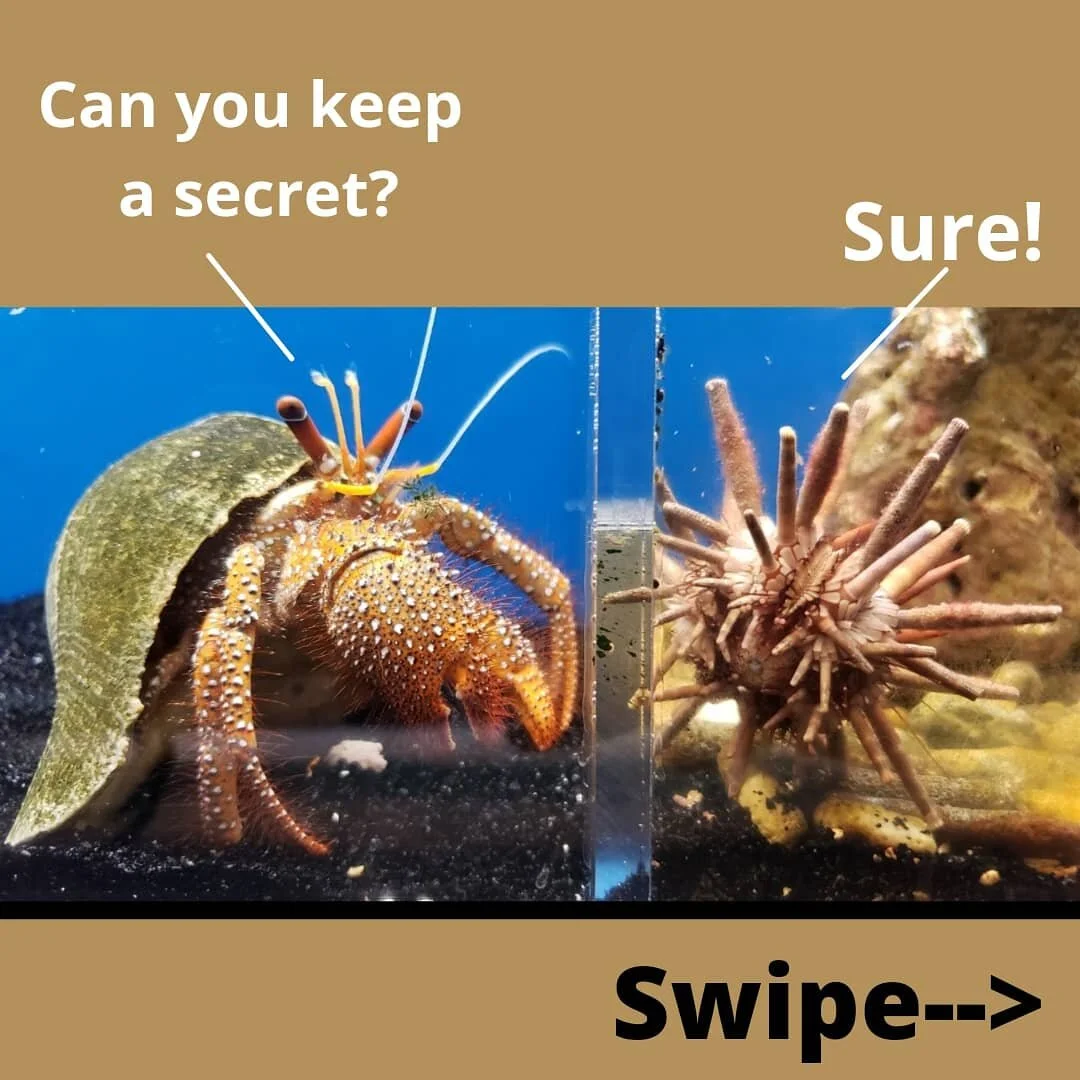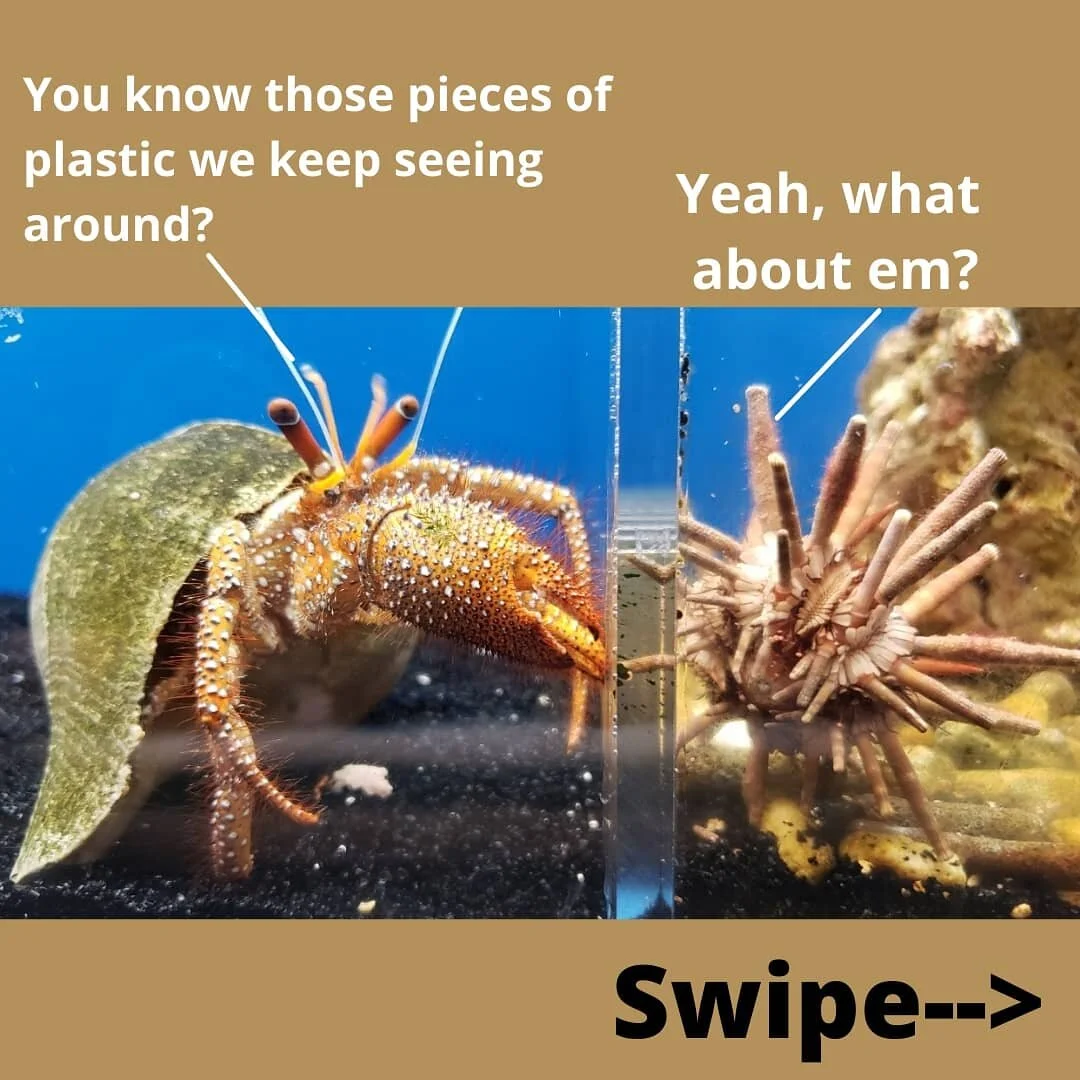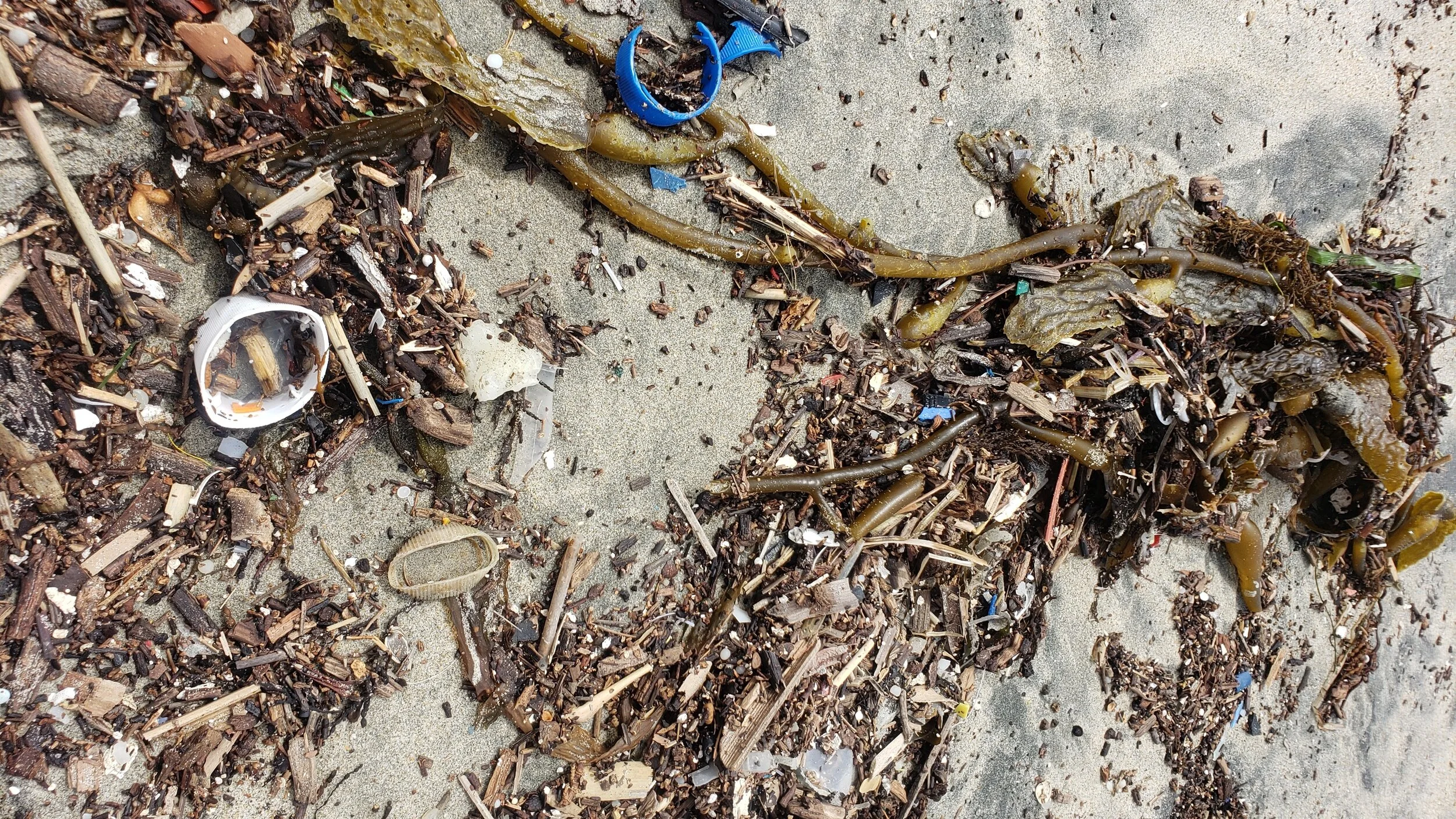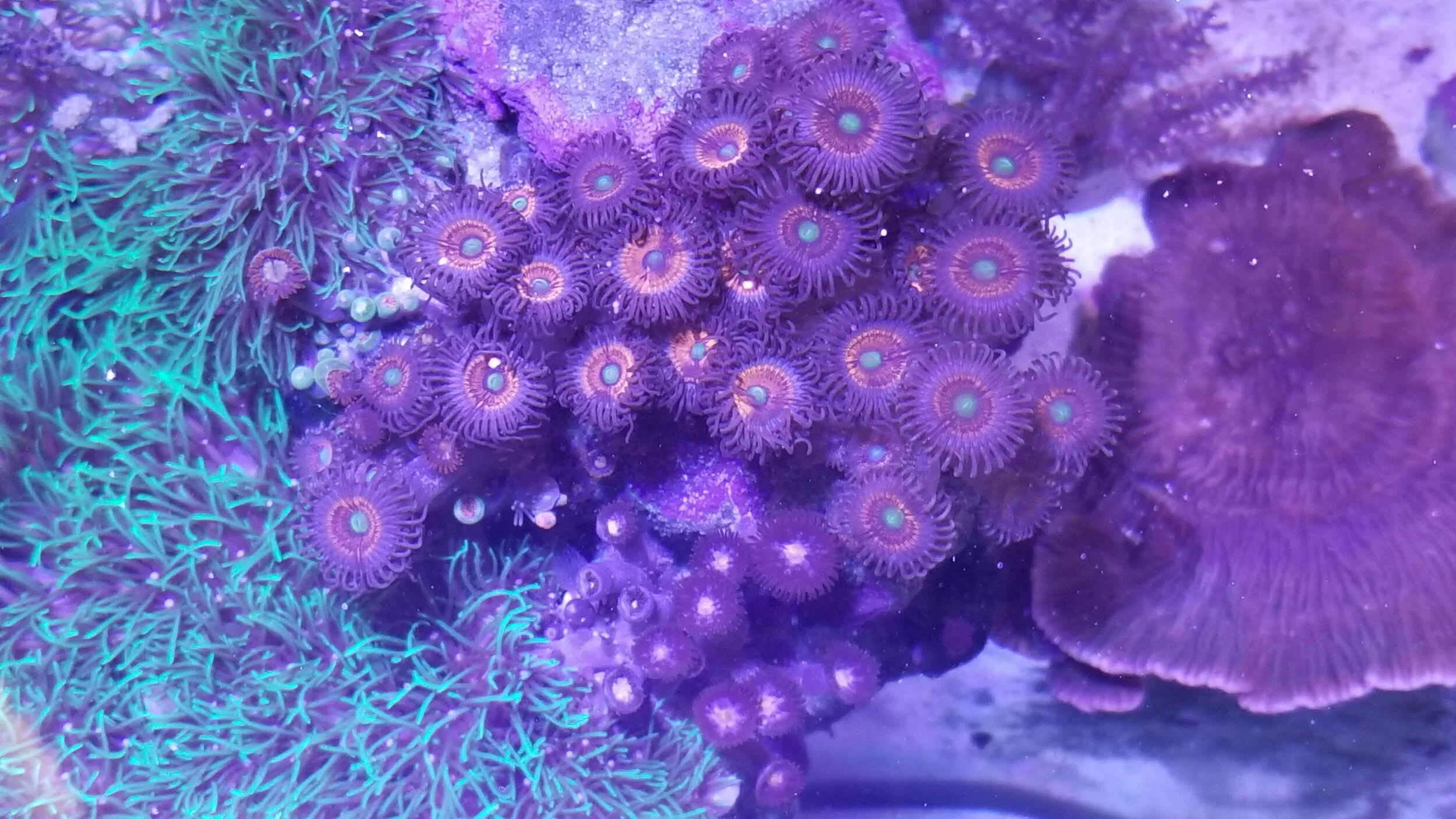What food do you love, but know its not good for you?
Comic of Red Hairy Hermit Crab Talking to a Pencil Urchin
A recently released study by the Hull University in England found the chemical additive, oleamide, which is released from plastic gets crabs excited.
The crabs showed elevated respiration rates (an indicator of excitement) when in the presence of even a small amount of oleamide.
Comic of Marine Hermit Crab talking to Pencil Urchin
While this response could be an indicator of sexual excitement, it is also similar to their feeding response.
When arthropods decompose they release oleic acid, which is very similar to the chemical make up of oleamide that is released by the plastic.
Comic of Crab telling an urchin he gets excited by plastic.
As scavengers, and opportunistic eaters, a crabs food is often comprised of dead, decomposing matter that contains the oleic acid. Since the compound found in plastic is so similar to one of the chemicals in their food, it could explain the crab's positive association with the plastic.




